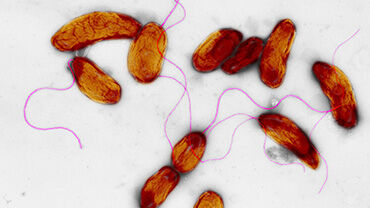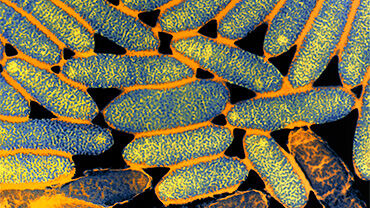World Water Day 2023
Every year on 22 March, World Water Day is celebrated worldwide. World Water Day is an annual United Nations observance day that highlights the importance of fresh water. The day is used to advocate for the sustainable management of freshwater resources. The theme of each year focuses on topics relevant to clean water, sanitation and hygiene, which is in line with the targets of Sustainable Development Goal 6. The topic for World Water Day 2023 is ‘accelerating change to solve the water and sanitation crisis’.
Several infectious diseases may be considered waterborne. For this post on World Water Day, we focus on ECDC’s work on two water-related pathogens: Legionella and Vibrio. As of January 2023 the revised drinking water directive should be implemented by Member States. It requires risk-based surveillance and assessment for Legionella in drinking water. This is a completely new development for Legionnaires’ disease prevention efforts. Legionella bacteria is listed with chemical factors such as microplastics, endocrine disruptors (beta-estradiol and nonylphenol) and other water quality factors including enteric pathogens.
The risk of Legionella comes from aerosolisation of water containing the bacteria. Drinking water in domestic systems supply water for drinking, but often also supply hot and cold plumbing systems for showers, taps, toilets, and not forgetting installations such as hot tubs, spas, plant watering systems, car machine washes and fountains.
Notifications of Legionnaires’ disease in the EU/EEA have doubled in the last decade, from 0.98 per 100 000 population in 2011 to 1.88 in 2020. You can read more about the increasing cases of Legionnaires’ disease in an article penned by colleagues and published in Eurosurveillance on 16 March.
In another area, ECDC developed the Vibrio suitability tool (Vibrio Map Viewer), which shows the environmental suitability for Vibrio growth in the Baltic Sea.
It is a near real-time model that uses daily updated remote sensing data to examine worldwide environmental conditions, such as sea surface temperature and salinity for Vibrio spp. The model has been calibrated to the Baltic Region in Northern Europe and might not apply to other worldwide settings prior to validation.
Infections caused by Vibrio species other than V. cholerae can be serious, particularly for immunocompromised persons. However, the overall occurrence is low despite an increase having recently been observed in northern Europe.
ECDC monitors the environmental suitability of Vibrio in the Baltic Sea during the summer. If and when the risk of Vibrio growth is determined as medium or above, weekly notifications are reported in the weekly CDTR.







